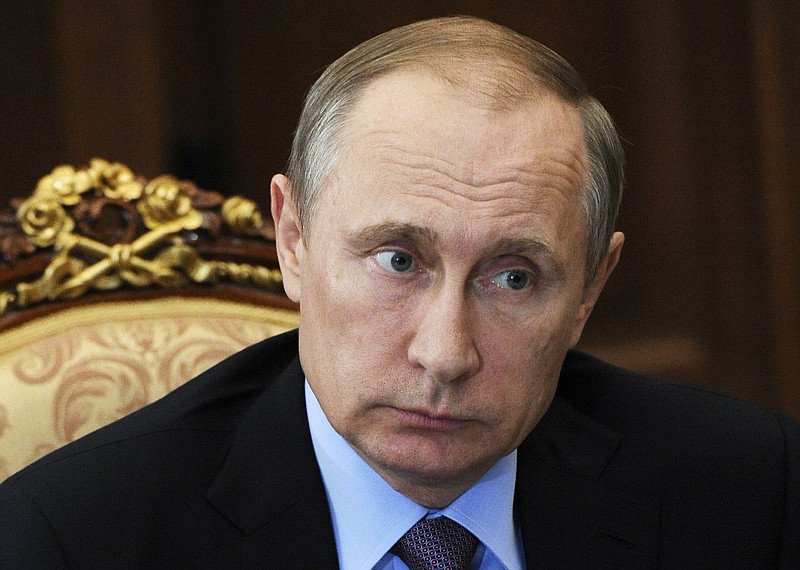Since President Richard Nixon intervened on the side of Israel during the 1973 Yom Kippur War with Egypt and Syria, the Jewish state has looked to the United States as its partner for peace in the Middle East.
It did until the presidency of Barack Obama, that is.
During his two terms, he has pushed for a one-sided nuclear agreement with Israel-hating, terror sponsor Iran, shunned Israeli Prime Minister Benjamin Netanyahu and generally favored Palestine in its border disputes with Israel.
On Thursday, the American president's hands-off policy finally resulted in what Nixon tried to prevent almost 43 years ago - the outsized influence of Russia (then the Soviet Union) in the region.
In 1973, Nixon chose to come to the defense of Israel not only because it was being attacked by Egypt and Syria but because a defeat of Israel - with the backing of Soviet weapons - would be unthinkable in the struggle for preeminence among the world's two superpowers during the Cold War.
The then-president made the decision on his own, against even the initial wishes of Jewish National Security Advisor Henry Kissinger. Ultimately, in Operation Nickel Grass, the U.S. delivered 22,000 tons of supplies in an airlift of 567 missions and another 90,000 tons by sea.
When then-Israeli Prime Minister Golda Meir heard about the airlift, she revealed later in her life, she began to cry.
Nixon had made sure there was no question on whose side the United States was on. Today, that's not so certain.
That became evident Thursday when Israeli and Palestinian leaders agreed "in principle" to meet in Moscow for talks to restart the peace process between the two. To be sure, a number of hoops must be jumped through for the talks to even occur, but until Obama the United States had been the primary broker for peace between the sides.
However, the last round of talks brokered by the U.S. - with little interest by the president - broke down more than two and a half years ago.
Meanwhile, Russia came down solidly on the side of the brutal Syrian government in its years-long struggle with rebels, who have been backed at most lukewarmly by the United States. And it has developed solid ties with Iran, which is suddenly swimming in U.S. cash and in a buying mood after the one-sided nuclear deal.
This is the same Russia that annexed the Crimean Peninsula from Ukraine in 2014 with hardly a raised eyebrow from the Obama administration and continues to occupy other parts of eastern Ukraine.
Why would our Middle East ally turn to the former Communist country for help? It might, because it doesn't sense any interest in a commitment to its survival by the administration - a strategy overseen by then-Secretary of State Hillary Clinton in Obama's first term - or in Obama to be an interested broker for peace.
Israel may understand that Russia has little interest in its dispute with the Palestinians, that its strategy is hegemony in the region. But in the absence of U.S. influence, it may feel it has to look to any powerful port in a storm for help.
Such is the cost of the dreadful foreign policy of the Obama administration, a pattern Clinton says she'd be only too happy to continue as president.
